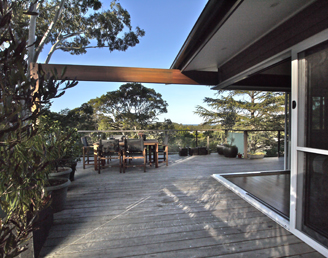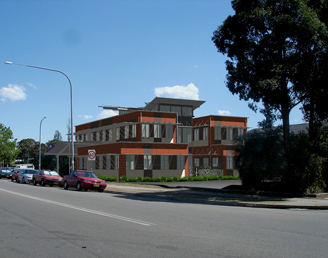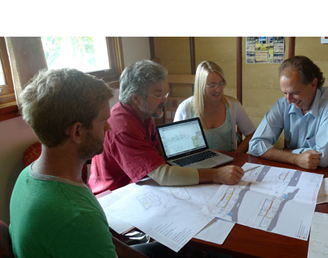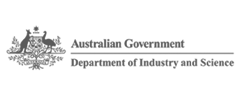Back to the future – or is that onwards to the past?
Posted by admin on 10/03/2011 at 7:05 amEurope and UK’s expert on carbon taxing and trading is “astounded” by Australia. Sadly, neither Uluru nor the Great Barrier Reef are responsible for this. Nope – it’s all our own work. Oh far we have (not) come…
George Negus said “after four years of self-defeating and unedifying squabbling, bless our little cotton socks, we are still somehow locked in embarrassingly adolescent point-scoring and counter-productive, partisan political nonsense on the joint global – indeed planetary – issues of climate change and global warming”. Jill Duggan, one of Europe’s top climate change advisors, says she’s “astounded” by the debate in Australia over a carbon price.
So why is it so hard for us as a community to debate the problem with intelligence? Certainly the shock-jocks at 2GB et al, and associated reactionary websites do not encourage measured debate, nor do they allow any real expression of views different to their own (a sin we can all be guilty of at times). Interestingly, if you listen carefully to Malcolm Turnbull’s critique of the carbon tax you get a very different analysis than Tony Abbott’s. Turnbull is much more analytical, Abbott’s is mere pugilism. Anybody can be a gutter fighter, why a Rhodes Scholar doesn’t engage his grey matter – and therefore engage OUR grey matter – escapes me. But then, the Government needs to engage our grey matter much more too, which they have promised to do. Lets hold them to that.
Otherwise, everything I said in last week’s blog still stands…
The federal Government’s proposed carbon tax threatens to become yet another divisive issue, when we should be working together on tackling climate change. The usual personalisation of issues – “Gillard’s new tax” etc, and “Abbott’s fight against the big new tax” – does nothing to help a measured understanding of the issues involved. What is a carbon tax, and how will it help drive change? Will it hurt “the economy” unnecessarily?
The first thing is to accept that human-induced climate change is real and happening. If you don’t accept that, do a lot more direct research of your own (not 2nd hand stuff from deniers) and come back when you’ve read enough on the matter at CSIRO, BOM, NASA, Woods-Hole Institute, and any university climate science department to convince you. I am amazed at how many people do not accept the reality of the consensus of scientific opinion – still. A good introductory primer is http://www.skepticalscience.com/
A carbon tax is one of several ways of inducing change in the way the community and business consume energy. The current proposal is to tax emissions of greenhouse gases (GHGEs) at a yet to be determined rate (which Mr Abbott has apparently quantified as adding 6c/litre to fuel costs – not show how he worked that one out). The money raised is promised to offset cost increases for households and some businesses, ideally such that no one household is worse off. Put aside the unlikelihood that this will literally be true, and continue an analysis of the principle…
If your family pays $500/yr extra in cost increases because of the Ctax, but receives $500/yr in rebates, you are no worse off. But where is the change in emissions coming from? If you are as dumb as the Opposition is painting you, there will be no change, and same old same old will apply. hopefully you will be smarter than that, because there are savings to be made.
If you are an average family, with a typical house, 2.3 kids and 2 cars, you can actually reduce your net energy consumption (assumed from coal, gas and oil) by 80%, no problem. Smaller car, public transport, ride a bike, efficient appliances, passive solar renovation to the house, solar energy, Greenpower, the list goes on… and it all works to reduce your emissions. The cost of the stuff and activities that cause emissions will go up, as the tax bights. But if you reduce the activities, the real cost to you will go down. Meanwhile you will still be receiving the rebates – which is now money in your pocket. So what Tony Abbott is describing as a big new tax, can actually be a big new tax rebate.
Similarly for business, if they invest in cleaner processes and equipment, their tax bill goes down, along with their running and maintenance costs – and of course, so do their emissions decrease. It’s a win-win with a bit of investment pain up front. Of course, getting the CEOs and Boards to look beyond next quarter’s profit result is the biggest hurdle for corporate Australia. Thinking in Australian boardrooms is so short term.
I am not an apologist for the Labor Government – I have openly opposed several policies since Julia took the reins. But I do like policies to be debated intelligently, and the Liberals seem unwilling to put their smart people into the media so they can do that (and yes, they do have some very smart people).
Space here demands that this analysis is a bit simplistic, and considering no $ value has yet been put on the carbon emissions it has to be. What happens after 2012, when the ‘cap and trade’ ETS replaces the simple tax, needs another story again, but the basic principles still apply. Surprisingly accurate and frank analysis can be found here (and follow the links from there): http://www.aph.gov.au/library/pubs/climatechange/responses/economic/carbontax.htm There is also a nice critique of the current political stances on The Drum at ABC: http://www.abc.net.au/unleashed/44542.html Authoritative summaries can be found at the Australian Conservation Foundation website https://acfonline.org.au/default.asp
Sustainable House Design
We will help you create a family home that works well, feels good, is kind to the environment, culturally appropriate and reduces your energy and running costs.
Read MoreSustainable Commercial Buildings
We design your building to help reduce your operating costs, optimize the life cycle of your building, increase your property value and increase employee productivity.
Read MoreWorking with Envirotecture
We design beautiful, sustainable buildings that work for you, your family or your business. Full range of building design, consulting and training services.
Read More






















